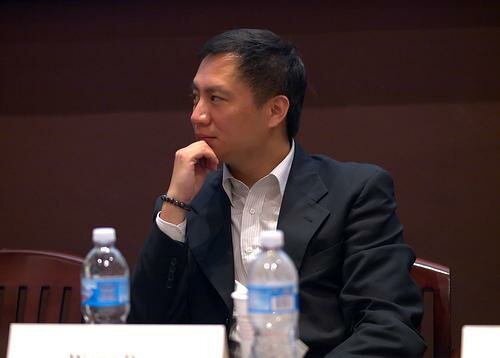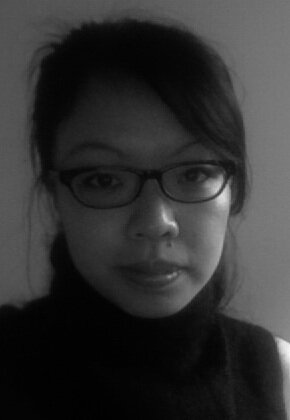Where Are the Tiananmen Leaders Now? (Part 1)
Some discovered Jesus, and others wealth and success on Wall Street. A handful are on Twitter where one of them tells of how he was entrapped by his wife, a Chinese undercover spy. Here are the 21 most wanted leaders of the Tiananmen uprising, 22 years later.


Some discovered Jesus, and others wealth and success on Wall Street. A handful are on Twitter where one of them tells of how he was entrapped by his wife, a Chinese undercover spy. Here are the 21 most wanted leaders of the Tiananmen uprising, 22 years later.
1. Wang Dan 王丹
Top of the list is the former history major from the Chinese capital's prestigious Beijing University who calls himself an ”incurable idealis [4]t”.

Wang Dan was arrested in July 1989 and sentenced to two years' imprisonment in 1991. After he was released, Wang continued to criticise the Chinese government on its human rights record. He was arrested again in 1996 and sentenced to 11 years for “subversion of state power”. He was released in 1998 on medical grounds and sent to the United States. In 2008, he received his PhD in History from Harvard University, and is currently a visiting assistant professor at the College of Humanities and Social Sciences, Taiwan's Tsinghua University.
In one of his most recent interviews, Wang said [5] that though China continues to arrest dissidents such as Liu Xiaobo (刘晓波) and Ai Weiwei (艾未未), it should not be concluded pessimistically that democracy will not be fulfilled in China. After all, every democracy movement will meet with repeated obstacles and repression, and take a tumultuous path.
However he disagrees with the Western school of thought that once a country attains a certain level of affluence, people will demand for democratic reforms. According to him, China's economic growth is built on a different model, one created on the basis of social injustice. The more rapidly China's economy grows, the greater the hindrance to democracy.
Wang can be found on Facebook [6] and Twitter [7].
2. Wuer Kaixi 吾尔开希
In a commentary [8] on the revolutions that swept through the Middle East, Wuer Kaixi wrote:
阿拉伯人民的勇敢对於中国人民是个提醒,是个冲击、是个鼓舞。它提醒中国人民这世界上过去二十年来的民主浪潮是中国人民发起的却也仍然在中国还是一项未竟的事业...
“The bravery of the Arab people is a reminder, an impetus and an encouragement to the Chinese people. It reminds the Chinese people that the wave of democracy in the past 20 years that was started by the Chinese remains an unfinished business in China...”
Originally from the Xinjiang Autonomous Region, Wuer Kaixi was studying education at the Beijing Normal University. Together with Wang and other leaders, he launched a hunger strike that finally got the attention of the Chinese leadership.
Demanding dialogue signifies that the people have the right to speak on equal terms with the government...
After the June 4 crackdown on Tiananmen, Wuer fled to France and later to the United States, before finally settling now in Taiwan. The 43-year-old has now been in exile for more than 20 years.
On June 4 last year, he tried to turn himself in at the Chinese embassy in Tokyo, but was instead detained by the Japanese police. According to him, he was seeking dialogue with the Chinese authorities, just like what they were after back in 1989.
On his blog [9], he wrote:
提出“对话”这个口号就是表达,人民有与政府对等地说话的权利,有表达不同于政府立场的权利,可以说,这正是民主的核心价值。
“Demanding dialogue signifies that the people have the right to speak on equal terms with the government, to express opinions that are different from the government's; you can call it the core of democracy.”
He also spoke of the Charter 08, the manifesto signed by more than 300 Chinese intellectuals and co-authored by his friend and teacher 2010 Nobel Laureate Liu Xiaobo, currently serving a jail term in China for it.
Turning himself in, said Wuer, was his way of telling the Chinese government that pro-democracy activists are not afraid, and would join Liu in jail.
Wuer Kaixi tweets at https://twitter.com/#!/wuerkaix [10]i and writes in English and Mandarin at https://wuerkaixi.com [11].
3. Liu Gang 刘刚
Like a chapter right out of a spy novel, the story has been unfolding the past week on Twitter. Liu Gang says his wife Guo Yinghua is an undercover spy sent by the Chinese government.
According to Liu, Guo contacted him via the Internet. She presented herself as a graduate of a top American business school and a manager at a major U.S. firm. The two met two days later, and Guo immediately proposed that they marry.
He agreed and she soon moved in with him. By his own admission the relationship was off to a bad start. At her request he bought her a car and a 1.47 carat diamond ring from Tiffany, worth US$25,000. She later brought it back to the store, and exchanged it for a 2.18 carat one which cost him US$35,000. Her reasoning was that 1-4-7 was inauspicious-sounding in Chinese. To pay off the expenses, he had to borrow money from a friend and eventually sell off one of his two houses.
... she is a military spy sent by Beijing.
They were married later that year, and had a baby in December 2008. According to Liu [12], their married life was marked with her extending control over all his finances, domestic violence on her part which led him to be locked up and hauled into court.
Apart from descriptions of her perfect marksmanship and various payments received allegedly from China, Liu also reproduced on his blog documents to support his allegations that she is a military spy sent by Beijing.
The two have filed for divorce.
After he was imprisoned for four years for his involvement in the Tiananmen Uprising, Liu fled to Hong Kong in 1996. From there, he left for the United States where he received his PhD from Columbia University. In 2005, Liu organised a memorial service when Zhao Ziyang, the Chinese leader who had been sympathetic to the demonstrators, died.
Liu Gang, who now works on Wall Street, tweets at https://twitter.com/#!/LiuGang8964 [13] and blogs at 反超限战 [14].
4. Chai Ling 柴玲
Chai Ling fled China for France and arrived in the U.S. where she attended both Princeton and Harvard universities.
In an interview [15] on Voice of America, she recalled how during the uprising of June 1989, ordinary Chinese would offer bread and whatever little they had for the striking students. She also talked about how old men and women tried to protect the students by placing themselves in the way of army vehicles.
Baptised last April, Chai has since become a committed Christian (See video at 12:07) and expressed how she now hopes former Chinese premier Li Peng will one day come to know and accept the love of Jesus Christ.
Chai is now leading a crusade against female infanticide in China, arising from the state's One-Child Policy which led Chinese families to abort less-favoured daughters. She started the organisation All Girls Allowed [16] and led a bi-partisan coalition to sign [17] the Declaration to End Gendercide.
Chai graduated from Peking University and was studying child psychology at the Beijing Normal University at the time of the uprising.
5. Zhou Fengsuo 周锋锁
In 1989 Zhou Fengsuo, then a fourth-year student at Tsinghua University, was sentenced to a year in prison after being turned into the authorities by his sister. His sister was ostracised as a result but in an interview in 2007, Zhou defended his sister. The enormous amount of hate mail she received made her realise the value of what they were doing on Tiananmen in June 1989.
6. Cui Weimin 翟伟民
Cui was imprisoned for 3 ½ years. Persuaded by friends who did not want to the arrests to lead to an exodus, he insisted on not leaving the country after his release. He started his own business and has maintained a low profile since.
7. Liang Qingdun 梁擎墩
Liang was a psychology major at the Beijing Normal University. He is believed to be living in the U.S. According to a Hong Kong pro-democracy site [18], Liang held a 48-hour hunger strike outside the Chinese embassy in San Francisco, after being denied permission to return to China.
8. Wang Zhengyun 王正云
Then an undergraduate of the Minzu University of China, Wang was arrested in his native Yunnan province in July 1989, imprisoned and freed two years later. He is said to be working now in the provincial capital Kunming.
9. Zheng Xuguang 郑旭光
In 1989 Zheng was a student at the Beijing University of Aeronautics and Astronautics. He was sentenced to two years' imprisonment, following which he remained in China and continued various activities to promote democracy and human rights. In the 16 years since 1989, he had been jailed three times. He is based in Beijing and works in stocks and investment. Zheng blogs here [30].
10. Ma Shaofang 馬少方
Ma was sentenced to three years' imprisonment. He now lives in Shenzhen. In an interview [31], he cited two things he remembered most about the events of June 4, 1989. The first was the non-violent resistance the students put up, as the soldiers pointed their weapons at their chests. The second was seeing the bullet-ridden body of a child at one of the entrances to the Tiananmen Square.
11. Yang Tao 杨涛
Yang, a student at Beijing University, was arrested and imprisoned for two years. In 1999, he was jailed again on tax-related charges. However there is speculation that he was punished for participating in activities commemorating the 10th anniversary of the Tiananmen Uprising. Yang was freed in 2003.
12. Wang Zhixin 王治新
Wang, from the China University of Political Science and Law, was arrested in December 1989 and released in 1991. He is said to be unemployed in China.
(The remaining ten on the Most Wanted List in Part Two [32], including the dissidents now serving in the US Army, and the man touted to succeed America's most famous investor Warren Buffet)

